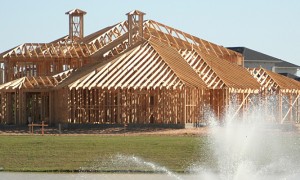Figures released by the US Census Bureau, as reported in the Star-Telegram, show that the Dallas-Fort Worth-Arlington area recorded the highest growth in the nation between June 2011 and June 2012. Living in Dallas means embracing growth and change, a vibrant business climate, and an energetic vibe.
Texas as a whole is enjoying a growth spurt; it has four of the most quickly growing counties and the top two expanding metropolitan statistical areas. Houston plays second fiddle to Dallas-Fort Worth in that respect, even though it boasts a much larger total population. The average age of Dallas-Fort Worth residents was listed as 33.5 in the population statistics.
Retire to Dallas-Fort Worth?
While a large part of the local growth can be attributed to the state’s advantages for business growth, a substantial number of senior citizens and baby boomers also seem to find their way here. Although Texas cannot compete with Arizona and Florida for retirees, its climate, tax structure, and relatively low cost of living and housing make it attractive to those who are contemplating the easy life.
Many baby boomers today seek to reinvent themselves after a life of active employment; embarking on second or even third careers, they find the local business climate attractive. Others simply find the physical climate attractive. Some retirees return to school; some find that mentoring school children is a kind of second calling; and some move to Big D or Cowtown to be near family. Cultural richness contributes to local appeal, and quality medical care is important.
Although commuting time and distance from city centers may not be pertinent in this context, the expanding public transportation network is a bonus, and the efficient freeway system and reliable city services are factors that influence moving decisions. Nearby museums and galleries, universities, and entertainment venues, as well as the major sports teams which call the Metroplex home, appeal to many.
An abundance of golfing communities, lakes and streams, and even the big-city lights are all cited as positives by baby boomers who relocate to Dallas-Fort Worth. Whereas the Hill Country and the Gulf Coast have previously been havens for the newly retired, active retirees now frequently opt for the good life in the Metroplex, traveling to other Texas destinations for recreation.
Living Options Meet Different Needs
Targeted over-55 communities are in short supply all over Texas, and Dallas-Fort Worth is no exception. Several neighborhoods exist north of Dallas, and one is planned to be a city of 7,200 homes at completion. Buyers in each community enthusiastically endorse the lifestyle. Golf courses, activity centers, hobby shops, numerous clubs, and special interest groups occupy residents, as do organized off-site events and tours. Age restrictions vary from none to over-40, and these communities boast as many working residents as retired.
A far cry from the restrictive retirement communities popularized in other states decades ago, these up-to-date planned developments offer homes ranging in price from $150,000 to more than $700,000.
Options for living in Dallas or Fort Worth also include lakeside developments, downtown condos and lofts, and a smattering of luxury high-rise buildings. Small-town living can be found within a short drive of the cities, and acreage is still available for those who might cherish agricultural pretensions for their retirement years. Also, as in any city with a healthy real estate market, options for downsizing are always available in traditional neighborhoods.
One thing is certain: No baby boomer who chooses to live in Dallas or Fort Worth would ever find retirement boring.
Image Source: Flickr/Alicia Lee
[cf]skyword_tracking_tag[/cf]






